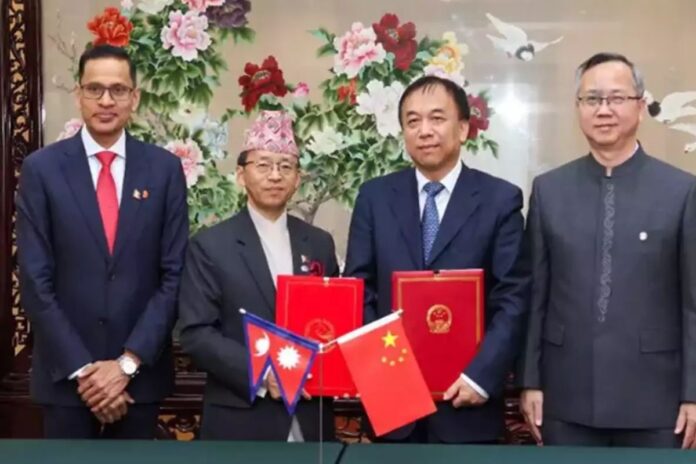
Nepal and China have signed a framework agreement under the Belt and Road Initiative (BRI), marking a major step towards starting long-delayed infrastructure projects after the initial pact was signed in 2017. Nepal’s foreign ministry announced the signing, stating that the framework will pave the way for project cooperation.
Prime Minister K.P. Sharma Oli, on his first foreign trip since taking office in July, broke tradition by choosing Beijing over New Delhi as his first foreign visit, signaling a pivot towards China. The Belt and Road Initiative, spearheaded by Chinese President Xi Jinping, aims to bolster global infrastructure and trade, but Nepal’s involvement has seen no significant progress due to the absence of a cooperation framework and political disagreements.
With the signing of this framework, Nepal and China can now proceed with detailing projects, including transportation corridors and road upgrades. However, debt concerns loom large within Oli’s coalition, with the Nepali Congress party expressing reservations about projects funded by Chinese loans.
A key BRI project, the Chinese-built Pokhara International Airport, which was funded with a $216 million loan from China, has faced challenges, particularly a lack of international flights due to India’s refusal to allow the use of its airspace.
